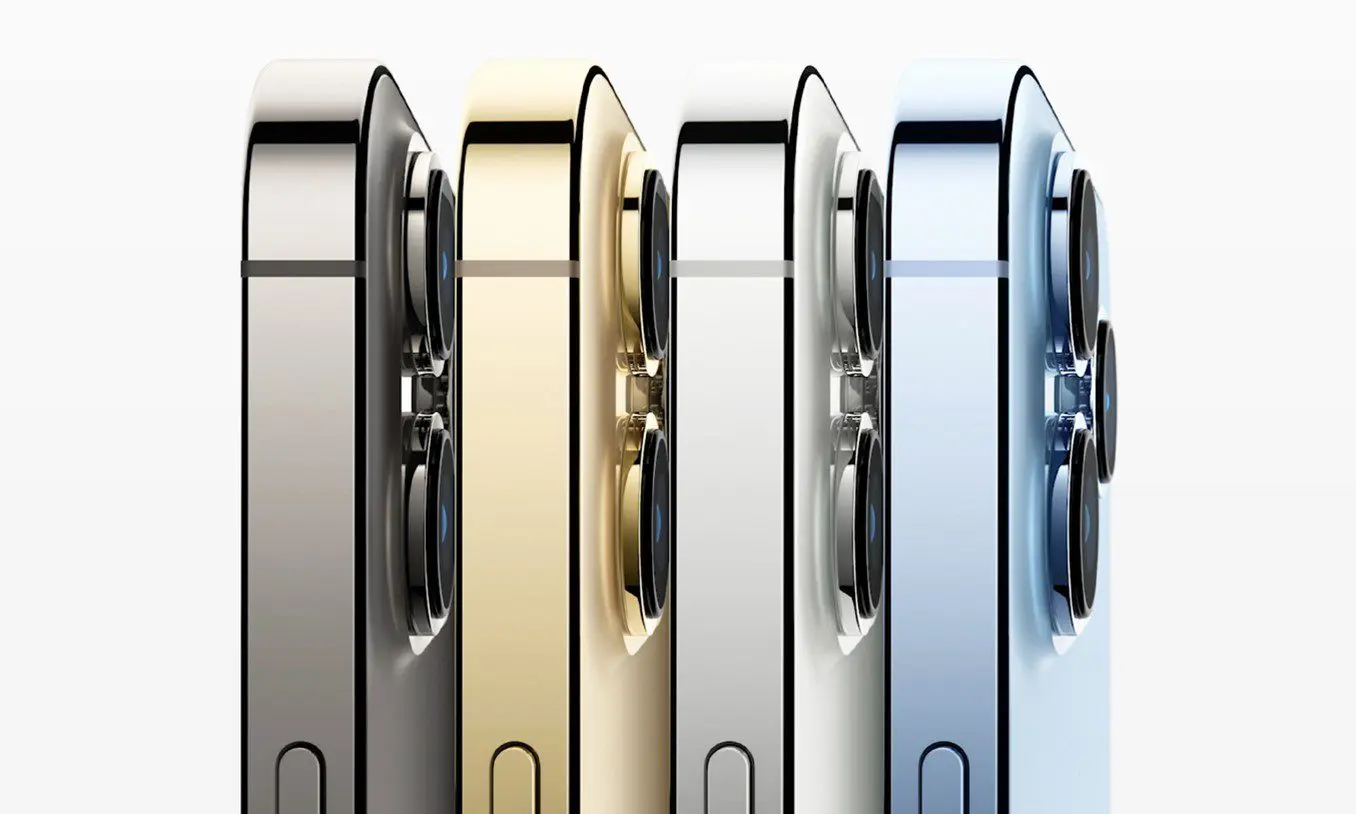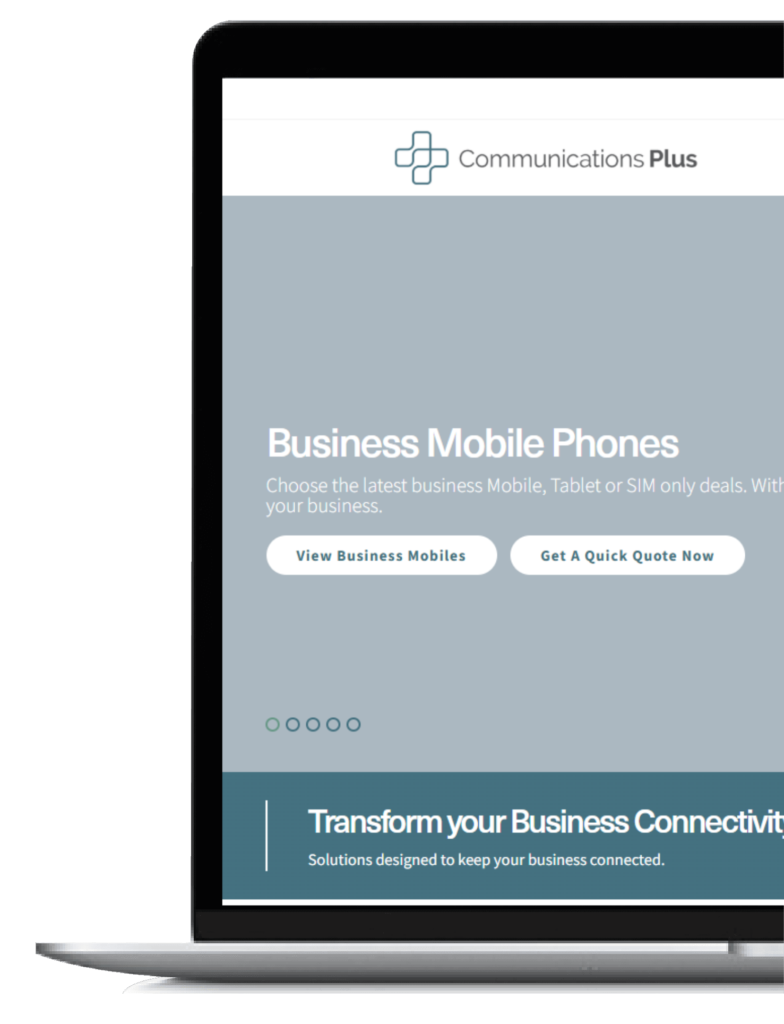If you need to use a phone for business, you’ve probably experienced the problem of trying to separate your personal and business calls and it can be difficult when you’ve got one phone for both – especially when trying to switch off at the end of the day.
Most people have their mobile phone with them at home in case family or friends call – or because they’re scrolling through social media or browsing online. But that can also mean you’re never really away from your work phone, and if you get a work notification, it can be difficult to ignore.
One option is to get a second mobile phone as this separates your personal and business calls easily. But then you’re paying for an extra device and airtime plan, have to charge up two phones and carry them both with you.
There is a better solution – Dual SIM phones.
Dual SIM Phones for Business — Fully Managed
Many of our business customers use dual SIM devices to separate work and personal calls, improve coverage using two networks, or add a business eSIM alongside a personal number.
We supply dual-SIM ready iPhones and Android devices, business tariffs, and eSIM solutions across all major UK networks.
👉 Speak to our business mobiles team – 03701 020204
👉 Or request a callback
In this blog, we look at what dual SIM phones are and some of the advantages and disadvantages you could get by investing in one as your next business mobile phone.
What is a dual SIM phone?
A dual SIM phone is a mobile phone that allows you to have two separate SIM cards in one device.
The SIM cards don’t have to be connected to each other. Instead, you can have two separate phone numbers attached to the same phone and can even have the two numbers from different mobile networks, which can help improve coverage in some areas and gives you flexibility to choose the best deal for each line.
Dual SIM phones allow you to seamlessly switch making outgoing calls, text and data between your two phone numbers with the touch of a button.
How do dual SIM phones work?
A dual SIM phone works in much the same way a single SIM phone does.
When you insert and activate each SIM card, you’ll have a connection and phone number attached to each one, allowing you to make and receive calls, use data and texts. Both numbers can receive incoming calls if they are switched on at the same time, though usually you can only talk on one call at a time. Note: On most dual SIM phones, both SIMs are on standby, but only one call can be active at a time. Some newer models handle this more flexibly which means it’s worth checking which devices your business team uses before rollout.
If you want to make an outgoing call, text or use data you just simply switch between SIM cards depending on which number you want to use. This usually involves choosing option 1 or 2 at the point of making the call or sending the text. For data usage you set that in the connection settings.
How to switch off one SIM in a dual SIM phone
One of the things to note with a dual SIM phone is that both sims are active at the same time, though you don’t have to have both SIM cards active all the time.
You can switch off a SIM card temporarily if you want to. For example, if you’re going on holiday and want to turn off your business SIM until you get back.
Switching off a SIM card is straightforward. You just go to your phone settings, select SIM management (or SIM settings) and then you can select which of the two SIM cards you want to turn off.
To turn it back on, go back to the settings and turn the SIM on.
Using dual SIMs with eSIM phones
More recent smartphone models have started to do away with the physical ‘nano’ SIM cards that we’ve all got so used to.
Instead, ‘eSIMs’ have become the order of the day, with programmable SIM cards built directly into a smartphone.
The use of dual SIMs is still possible with eSIM-enabled phones, and with many newer phones allow multiple eSIMs on one device.
Most manufacturers will allow users to have dual eSIM or nano SIM cards or combine the two.
Common Dual SIM Business Use Cases
Businesses commonly use dual SIM phones to:
- Separate work and personal numbers
- Add a business eSIM to a personal device
- Use two networks for coverage resilience
- Reduce roaming costs for travel
- Support temporary project numbers
- Improve call availability for customer-facing staff
Not sure if dual SIM or eSIM is best for your team? We can review your current setup and recommend the most cost-effective option.
Need Dual SIM for Your Business Setup?
We can help you choose:
✔ Dual SIM iPhones & Android devices
✔ eSIM + physical SIM setups
✔ Multi-network coverage options
✔ Business tariffs and pooled data
✔ Device + airtime bundles
Talk to our team or REQUEST A QUOTE
Advantages of dual SIM phones
1. Widen your network coverage
Because you can have two SIM cards from two separate network providers, you can extend your network coverage and help reduce ‘coverage blackspots’ — especially if one network performs better than another in certain locations.
This is particularly beneficial as 5G coverage continues to expand, as having access to two networks can improve the likelihood of staying connected in more places, depending on where you work and travel.
If having a separate personal and business phone number is important, having two different phones could be an expensive option, depending on the make and model of phone you want.
Using dual SIM eliminates much of the cost because you won’t need two different phones.
2. You don’t need separate personal and work phones
Similar to the point above, having a dual SIM Business Mobile Phone means you won’t need the hassle of having separate business and personal phones. This doesn’t just save money on costs. It can also save you time and effort trying to manage two phones.
For example, trying to keep them updated with the latest software or dealing with notifications or technical issues on multiple devices.
3. Easier to split business and personal calls
Business phones have some financial advantages when it comes to your expenses. But using your personal phone can make it more difficult.
With a separate business number registered to your company, you can claim for all the activity on the phone as part of your end-of-year tax.
If you use a personal phone for business, you can only claim a proportion of the money back.
With a dual sim, you can easily keep your business and personal calls separate and make the process of claiming for business expenses much easier – with the benefit of splitting your personal and business numbers.
4. Switch providers for international calls
Different phone providers deal with international call costs differently.
While some have great deals for domestic calls, others might have poor deals on international calls or roaming charges.
On the other hand, those with the best international call rates may not have the best domestic deals.
You can get the best of both worlds with a dual SIM phone.
You can choose your ‘main’ SIM card based on the deal you want for domestic business calls.
Your second SIM could then be used on international and roaming costs if you travel abroad regularly for work.
5. Mix and match your calls, texts and data
One of the great things about dual SIM phones is that you can mix and match how you want to use a particular SIM card as default.
For example, you can use one SIM card for making calls (for example, if you have unlimited calls) and use the other SIM for texts and data.
This ensures you get the best out of your investment.
You can also switch between SIMs for making individual calls or sending messages if you use one for business and one for personal use.
6. Take multiple calls with both SIMs
In newer versions of dual SIM phones, you can take calls on one SIM and still receive calls on the other.
This means you can take a personal call on one SIM and be notified that you have a call waiting if someone calls your business SIM number.
This reduces the risk of missing an important business call during a personal call and avoids sending potential customers and clients to voicemail.
Disadvantages of dual SIM phones
1. Battery drain can be affected
Because you’re operating two SIM cards from a single phone, your phone is putting in extra operational work, so the battery can drain slightly quicker.
This could be a problem if you’re a high user or are away from a power source, or regularly need to plug your phone in. If you can plug in and charge up during the day then its not an issue.
2. They can be more technical to use
While it’s easy to switch between SIM cards when making a call or sending a message, it does add a more technical aspect to your phone’s usage, and it could be easy to forget to choose which SIM card you want to use.
Having a dual SIM phone has many benefits, but it might take a little bit of management.
3. Using one SIM card can temporarily deactivate the other (in older models)
In older models of dual SIM phones, using one SIM card may temporarily make the other line unavailable while your phone is in use (this depends on the device model).
For example, if you take a personal call, anyone who tries to call your business number will be automatically directed to voicemail – without you receiving any notifications.
This could be less of an issue if you have a newer model, but it’s something to keep in mind. Check with our expert team if you’re not sure what your phone will do.
4. It’s more expensive than ‘one phone, one SIM’
While ultimately, it’s much cheaper to use a dual SIM phone than to have two separate phones for personal and business (which in itself is better for managing your business’ calls), it could cost more to have two SIMs as you’ll potentially be paying for a personal and business tariff. However that can be outweighed by getting the correct tariffs for your two numbers and so isn’t necessarily an issue.
The good news is the cost of a second SIM may not be as much as you think, and needs to be weighed against whether you want to separate business and personal calls or are happy to get a work calls and messages at say 9pm.
Get a Dual SIM Business Phone — Ready to Use
We supply and configure dual SIM and eSIM business phones across all major UK networks, with tariffs tailored to how your team actually works.
✔ Device + tariff bundles
✔ Business billing
✔ UK support
✔ Coverage advice
📞 Call 03701 020204
📩 Request a business mobile quote










